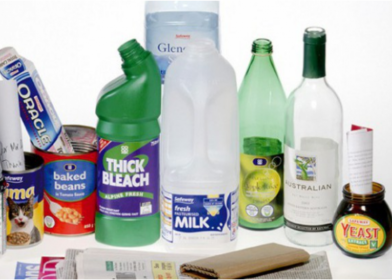In the second of our series about where our blue bin material ends up, we put the spotlight on glass and its recycling journey.
Ahead of European Week for Waste Reduction which takes place from November 18th to November 26th, we want residents to realise the important difference they are making by choosing to use their blue bin.
Residents across the Causeway Coast and Glens recycled almost 1835 tonnes of glass over the last year.
It accounted for 17% of all materials collected in our blue bins.
Recycling glass is important for both environmental and financial reasons.
Jars and bottles made from recycled cullet (crushed glass) require significantly less energy than that produced from virgin materials. Recycling one glass bottle saves enough energy to power a television for 1 ½ hours.
Glass does not loose quality no matter how many times it is recycled. So the same jars and bottles can be recycled over and over again to the same high production standards.
Landfill is currently taxed at £86.10 per tonne and this is due to increase again next year. Diverting as much glass as possible from landfill saves money which can be spent on other important Council services.
Glass collected in our blue bins is separated at a Materials Recovery Facility (MRF) in Newry. The segregated cullet is transported to the glass processing plant where it is electronically separated by colour. Our glass could be recycled locally or in Europe depending on the MRF operator’s contracts. One possible local recycling operation is with Encirc, based in Derrylin, County Fermanagh. The company produces a wide range of glass packaging from locally sourced recycled glass. Contracts with major food and drinks corporations mean our recycled glass could end up in bottles and jars sent to anywhere in the world.
The main raw material used in glass production is sand, so we can reduce quarrying operations which scar rural landscapes by simply depositing our used glass at any recycling point. Sand is the second most traded natural resource after water, and due to extraction it is now becoming scarce in some parts of the world.
Alongside blue bins, it is possible to deposit glass at a number of community bring-sites and recycling centres across the Borough. Working together, we can continue to improve on our recycling performance and ensure glass is not sent to landfill.
To find out more about what happens to the paper we recycle watch this short video below.
For further information about recycling go to www.causewaycoastandglens.gov.uk/live/bins-and-recycling or ring 028 7776 0305.
